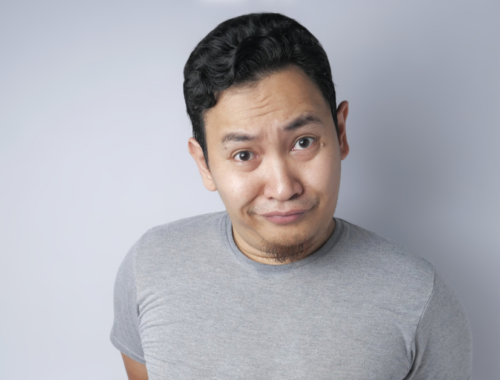
Highlights of the 2023 Sensitive Success Summit – Part 2
If you’ve been practicing the Joy of Missing Out (JOMO) and slept on the 2023 Sensitive Success Summit, an online international celebration of the HSP Trait created by Frida Kabo, you’re in good company.
If you missed Week 1, here are the Highlights from Week 1. I couldn’t watch and participate daily, but I did want to take the time, at my own pace, to benefit from the gems dropped in these half-hour interviews.
All speakers are Highly Sensitive, and each shared their stories, along with what they’ve been learning and finding helpful.
Here are the highlights of the Week 2 conversations.
WEEK 2
Lori L Cangilla – Stop Overthinking
A licensed psychologist and introverted, Highly Sensitive person, she created the Singularly Sensitive approach to empower fellow HSPs. She’s the author of “Wander and Delve,” a guide for HSPs.
Lori relates that overthinking is when we aren’t moving from a state of reflection to staying stuck in a heavy, painful place. It’s analysis paralysis.
She encourages HSPs to practise mindfulness and begin to notice when they’re overthinking, so see when they’re feeling tired, which triggers overthinking. Are they feeling pain or sickness or feeling physically uncomfortable? These factors can contribute to how often HSPs overthink. So perfectionism is also an indicator of how much an HSP is overthinking.
It’s a balance between “Am I stuck?” and “Am I still processing this information?” She’s a big advocate of journalling, which she believes is an excellent tool for HSPs.
Lori explains once we move from overthinking into a more productive state, that includes three areas;
- Exploration is about deep thinking and reflecting,
- Moving from deep thought and reflecting to an Experimentation phase (what works for you), and finally,
- Integration – taking what we’ve learned and finding more ways to apply what we experienced as positive into our lives.
She offers a free resource – https://singularlysensitive.thrivecart.com/skills-for-overthinking.
Jae Omnet – Handling Stress
Jae is a seasoned professional with over fifteen years of expertise in Health, Fitness, Yoga, Reiki, Moonology, Meditation, and a Masters in NLP. Jae discusses practical strategies for handling stress effectively.
Jae related how she realized she had ‘chosen’ stress after she was diagnosed with Adrenal Fatigue twice.
She related she learned it’s about what we’re choosing within ourselves when we’re in that state of stress. So it’s not about what’s going on around us externally, but instead, it’s about how we think and feel about that “To-Do List.”
She relates that there are things we can do daily and weekly to ‘release the pressure valve’ so it doesn’t build to an unmanageable state. Jae believes HSPs tend to feel stress to a higher degree than non-HSPs, which means it’s more important for HSPs to use tools to manage their stress levels. Some of these tools will be different and not apply to non-HSPs.
She suggests to begin managing stress, you can start small. So begin by choosing one thing. It could be getting more sleep, more movement (walking, yoga, etc.), more relaxation and reflection (meditation, journalling, creating art, etc.) and/or more conversations where you feel safe venting what you’re thinking and feeling.
It’s about finding and using ways that support your nervous system.
You can find Jae at https://www.jaeomnet.com.
Jessie Reynolds – Talking about Trauma
Jessie is a Trauma Transformation Coach and Therapist who helps adults heal from childhood trauma and stresses the importance of a trauma-aware world for our cultural and spiritual growth.
She relates that it isn’t so much about the traumatic “event” that happened (to you) but instead about the emotional imprint it left on you. So it’s the way your body, mind, and emotions adjust, adapt and change in order for you to be able to cope with the traumatic event. Regardless, the event will produce unresolved trauma until tools are learned to deal with the unresolved trauma.
Jessie believes we’re all dealing with unresolved trauma to one extent or another, and we need to address the unhelpful stigma of ‘not talking’ about trauma.
She believes HSPs, who have a highly sensitive nervous system, will experience a traumatic event differently – meaning an HSP is already in a heightened state, so a traumatic event will affect them more. Hence, the approach needs to be different and tailored to an HSP.
Jessie relates that when traumatic events happen, we can unconsciously forget or disassociate from them. So if you find yourself in a constant state of worrying about what other people think of you or have unhealthy coping mechanisms (overeating, drinking alcohol, shopping too much, etc.), unhealthy relationships, or anger outbursts, these can be signs you have unresolved trauma.
She suggests reflecting on the patterns in your life and then being open to your healing journey.
Jessie believes it is essential we become trauma-informed. For example, if you decide to see a Therapist or Coach about resolving your trauma, it’s helpful if you check if they have Trauma Informed Training.
You can find Jessie at https://www.traumatransformed.com.au.
Karlie Mckeand – Self-sabotage
Karlie is a Naturopath and also the founder and creator of the Emotion Release Technique (ERT). She currently offers ERT Training to Health Practitioners and has developed a specialized ERT training and modality for coaches.
Karlie delves into the reasons, patterns, and methods to overcome self-sabotaging behaviours.
She relates that self-sabotaging behaviours involve belief systems based on past negative experiences. These belief systems can contribute to choosing behaviours that get us off track.
Sometimes, we recognize we’re exhibiting a self-sabotaging behaviour or having a self-sabotaging thought (we’re conscious we’re self-sabotaging).
Still, sometimes we can’t, meaning we’re demonstrating self-sabotaging behaviour or thought, but we aren’t aware of it.
Karlie relates it’s about being aware of our belief systems, which can contribute to us feeling not good enough, not loved, or not being “enough.” Because if this is a belief we have, we’ll develop self-sabotaging behaviours like people-pleasing or perfectionism.
Karlie relates that our nervous system will give us clues that we’re self-sabotaging. When we’re feeling stressed (a sign our nervous system is overwhelmed), we can focus on the goal we’re trying to achieve and then focus on what we’re feeling and accept how we’re feeling. This will give us a lot of insight into why we’re self-sabotaging so we can practice self-compassion and releasing the emotions that are causing us to self-sabotage, so we can then address the core belief causing us to self-sabotage.
She relates when we address inaccurate core beliefs that hinder us and cause us to self-sabotage, we can then experience massive transformation and feel lighter and stronger.
You can find Karlie at https://karliemckeand.com.
Clare Kumar – Productivity In The Workplace
A Productivity Catalyst, helping professionals achieve sustainable performance and well-being while avoiding burnout. Clare will unlock the secrets to workplace productivity to achieve success.
Clare invites us to be open to better opportunities in the workplace and our home lives.
She offers a resource called the “Happy Space Work Style Profile” – a self-awareness tool that provides an opportunity for self-reflection. It’s a tool you can use to pinpoint the factors you need so you can do your best work. It asks questions like what do I need to do my best work? E.g. I want my colleagues to understand my needs around processing time and what time of day I like to work to encourage your best work.
You don’t necessarily have to share this with anyone; it will be good information for you to know, but this tool can also be used by a manager to better understand their team’s needs and tailor their communication and management style to invite their team to do their best work.
Clare related there’s language we can use to communicate our high sensitivity in the workplace. 30% of the population are not sensitive, 30% are sensitive and 40% fall between these two. So this is a medical model we can base our experience of life on and can communicate this in the workplace, as the HSP Trait is not a disability (so it can’t be “diagnosed) as it’s seen as “normal.”
It’s also a human right to participate in the workplace, so it’s a matter of inclusivity.
We can open a dialogue at work by saying – “here’s what I need, what I have a preference for.” This offers the option of flexibility. She encourages us to use our voice to find our best fit.
She does note it’s essential that if the workplace is too toxic and efforts to reach compromises aren’t reciprocated, it will be a matter of making a decision (setting a boundary) for a Highly Sensitive’s physical and mental health to leave that job. It’s a matter of finding the best fit for you.
Clare offers this resource – Happy Space Work Style Profile.
You can find Clare at https://clarekumar.com
Irene Weinberg – Embracing Grief
The person behind ‘They Serve Bagels in Heaven” and the mastermind of the ‘Grief and Rebirth’ podcast, your guides to embracing grief. She will take you on an intimate journey into ‘Embracing Grief”.
Irene defines grief about the passing of a loved one as a withdrawal of that person’s body. You miss their hugs and the times you shared joy with them, and recognize that you won’t have the opportunity to physically share happiness with them in the future. The process of grief is a way your body processes the loss of that person.
She relates that grief is filled with choices because as you process your grief and move through it, you have an option to use that experience as a way to heal and move forward in your life.
Grief can be a motivator.
Irene feels it’s important to use the love you experienced with that person as a catalyst to move forward. She believes that Highly Sensitives, who experience a deep sense of emotion, can use the strength of their feelings to address things that may come up for them when a close one passes, for example, abandonment issues. This will allow for a healthy grieving process.
This allows you to take the blessings of the relationship with a passed-over loved one and honour the relationship by being kinder to yourself, as this is what your loved one would want for you.
You can find Irene at www.ireneweinberg.com.
Julie Cusmariu – Listening to your Intuition
An experienced Executive and Life Coach is here to guide you on an exciting journey. She’ll uncover the secrets of ‘Listening to Your Intuition,’ your trusty compass for navigating life’s twists and turns.
Julie believes intuition is our own inner wisdom we can use to guide us. She relates it is about self-esteem and awareness of other people and our environments, and she believes it’s important we are in service to our intuition.
She defines intuition as an experience beyond the linear. It’s something we can feel, sense, that quiet voice. It’s always available to use, it’s wisdom and knowledge, and a companion on our life journey, an ally.
Discerning if your intuition is speaking to you, and you will wrestle with this, it’s part of being human. Still, things like fear, wishful thinking, and figuring out ‘how strong is my ego right now?’ can cause us to question if it’s really our intuition – but we can become familiar with what our ‘yes’ and’ no’ feels like.
A big part of it is understanding how our body speaks to us, how we’re feeling, and taking the time to create the habit of connecting to our body and doing body scans (periodically throughout the day). We can further use this technique to strengthen our ability to listen to our intuition and how that feels in our body.
When wondering if your intuition is guiding you, you’ll feel a sense of expansion, peace and relief if it’s a yes answer. A ‘no’ feeling will feel like constriction, anger, and other ways that show you you don’t want to move forward.
She believes Highly Sensitives have access to a high level of intuition, like a natural talent or ability. A challenge may be to ‘tune out’ the distractions. For example, can you pinpoint areas of your life, or parts of your day, that are noisy or distracting and then find a way to minimize or eliminate it. Julie invites you to listen to her meditation called Love Yourself.
You can find Julie at https://juliecusmariu.com.
That was Week 2 of the Sensitive Success Summit!
I’m wondering… are you noticing any patterns?
Let us know if you found any helpful gems. The next blog post will be a review of the Highlights of Week 3.





